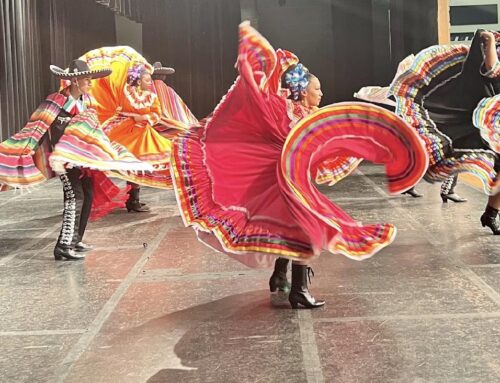 No good run lasts forever, and after 18 movies produced during the past 10 years, any movie studio would be long overdue for bomb or two. Sorry, haters: Black Panther is not Marvel’s. In fact, it represents another big step forward in content and quality, and ranks among their best to date. Director Ryan Coogler (Fruitvale Station and Creed) displays a clarity of vision that is rich in detail but does not overwhelm the twisty, emotional story (co-written by Coogler and Joe Robert Cole), and their rich characterization is fleshed by an almost obscenely talented cast. The result is a superhero movie that feels both expansive and personal.
No good run lasts forever, and after 18 movies produced during the past 10 years, any movie studio would be long overdue for bomb or two. Sorry, haters: Black Panther is not Marvel’s. In fact, it represents another big step forward in content and quality, and ranks among their best to date. Director Ryan Coogler (Fruitvale Station and Creed) displays a clarity of vision that is rich in detail but does not overwhelm the twisty, emotional story (co-written by Coogler and Joe Robert Cole), and their rich characterization is fleshed by an almost obscenely talented cast. The result is a superhero movie that feels both expansive and personal.
Black Panther benefits from Marvel’s willingness to allow it stand largely on its own: fan service is scant, the Easter eggs are subtle, and callbacks to previous movies are kept to a minimum necessary.
The movie picks up shortly after the events of Captain America: Civil War, during which T’Challa (Chadwick Boseman, Get on Up) inherited the throne of the fictional African nation of Wakanda and the mantle of its titular protector after the tragic death of his father (events that are briefly recounted). T’Challa returns home for his coronation, and to determine Wakanda’s place in the world at large. On the surface, it is an impoverished nation; in reality it is a a virtual utopia sitting on a mountain-sized deposit of the metal vibranium, which for centuries has allowed them to prosper and develop next-level technology in secret to avoid having their resources plundered.
T’Challa’s confidantes — his mother Ramonda (Angela Bassett), tech-genius sister Shuri (Letitia Wright), and general Okoye (Danai Gurira) — are fine with maintaining the status quo, but secret agent/love interest Nakia (Lupita Nyong’o) feels Wakanda’s tech should be used to help other African nations. So does American mercenary Erik Killmonger (Michael B. Jordan), though his idea of help involves using Wakanda’s advanced weaponry for global conquest, and he’s not above staging a palace coup to do so.
Marvel Studios has had a chronic problem in regards to delivering memorable bad guys, but Killmonger — cheesy comic book super-villain name aside — stands as one of their more compelling villains. He’s a conqueror on the surface, scarred by racial injustice that Wakanda has avoided, and driven by deeply personal grudge that won’t be revealed here. Much like Loki, Magneto, and Heinrich Zemo, he’s a larger-than-life villain born from every day pain, a though we can’t agree with his methods, we know that pain is justified.
Much of the studio’s “Phase Two” era was hobbled by unremarkable villains, so-so sequels, and an increasingly dull house style production design. After the runaway success of Guardians of the Galaxy, Marvel has become less risk-averse and shown an increased willingness to take chances and color outside the lines, and it pays off big-time here. There’s a visual richness that expands Marvel’s movie universe much the way Doctor Strange and the Guardians movies did, in this case with beautiful blend of Afro-futurism and African mythical elements courtesy of production designer Hannah Beachler and costume designer Ruth E. Carter. Oscar nominee Rachel Morrison’s (Mudbound) cinematography is no less than stunning.
This is just Coogler’s third feature, and already he has established an impressive body of work. One can see why Marvel hired him; his is a steady hand when it comes to the drama as well as the action (which is plentiful and well-staged). It’s a good thing T’Challa and Wakanda play key roles in the upcoming Avengers: Infinity War, because Black Panther 2 can’t arrive soon enough.
[youtube https://www.youtube.com/watch?v=fsT5SyBLlIg]




